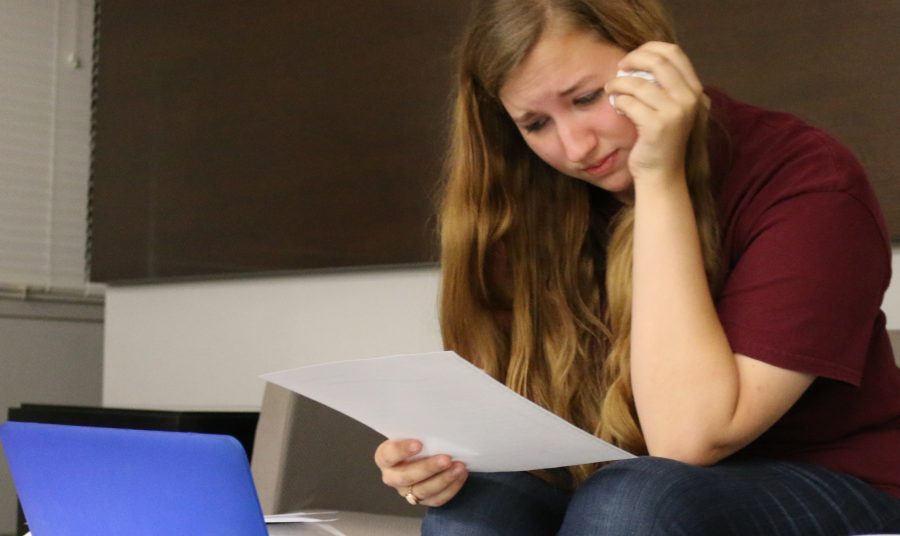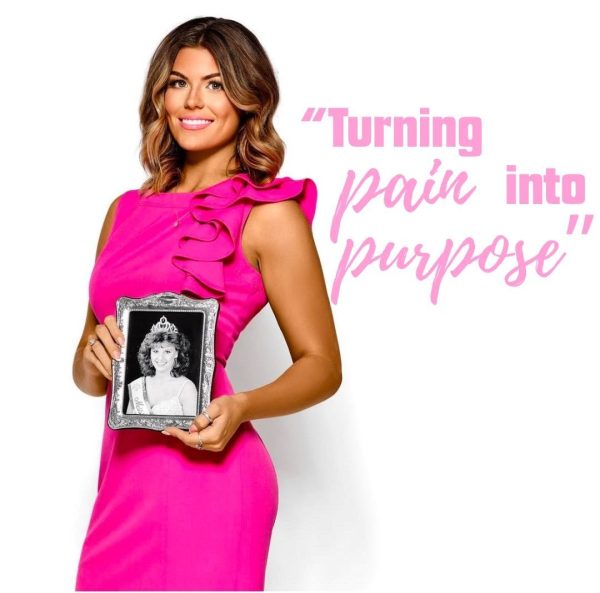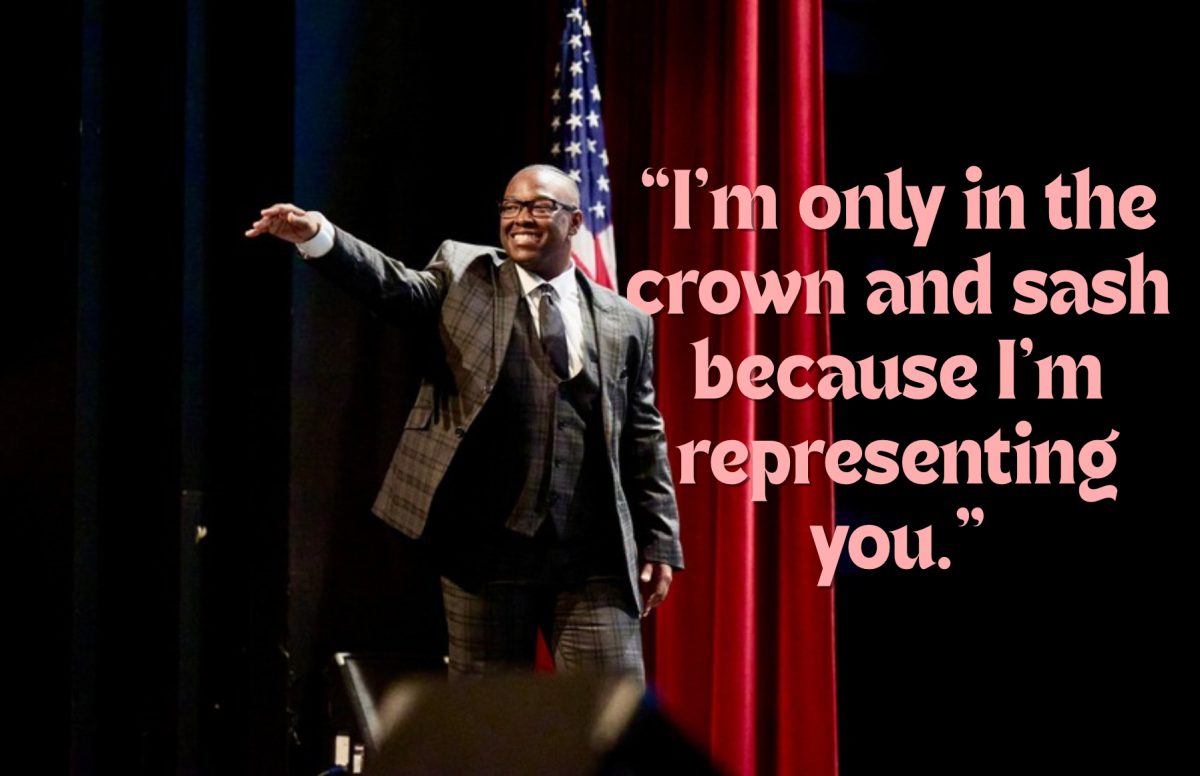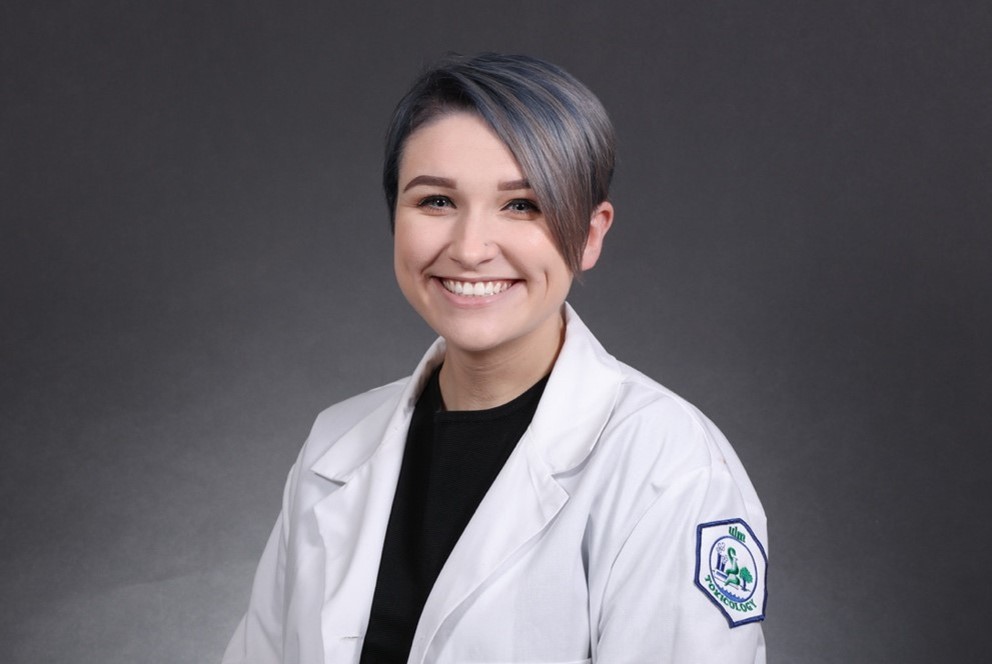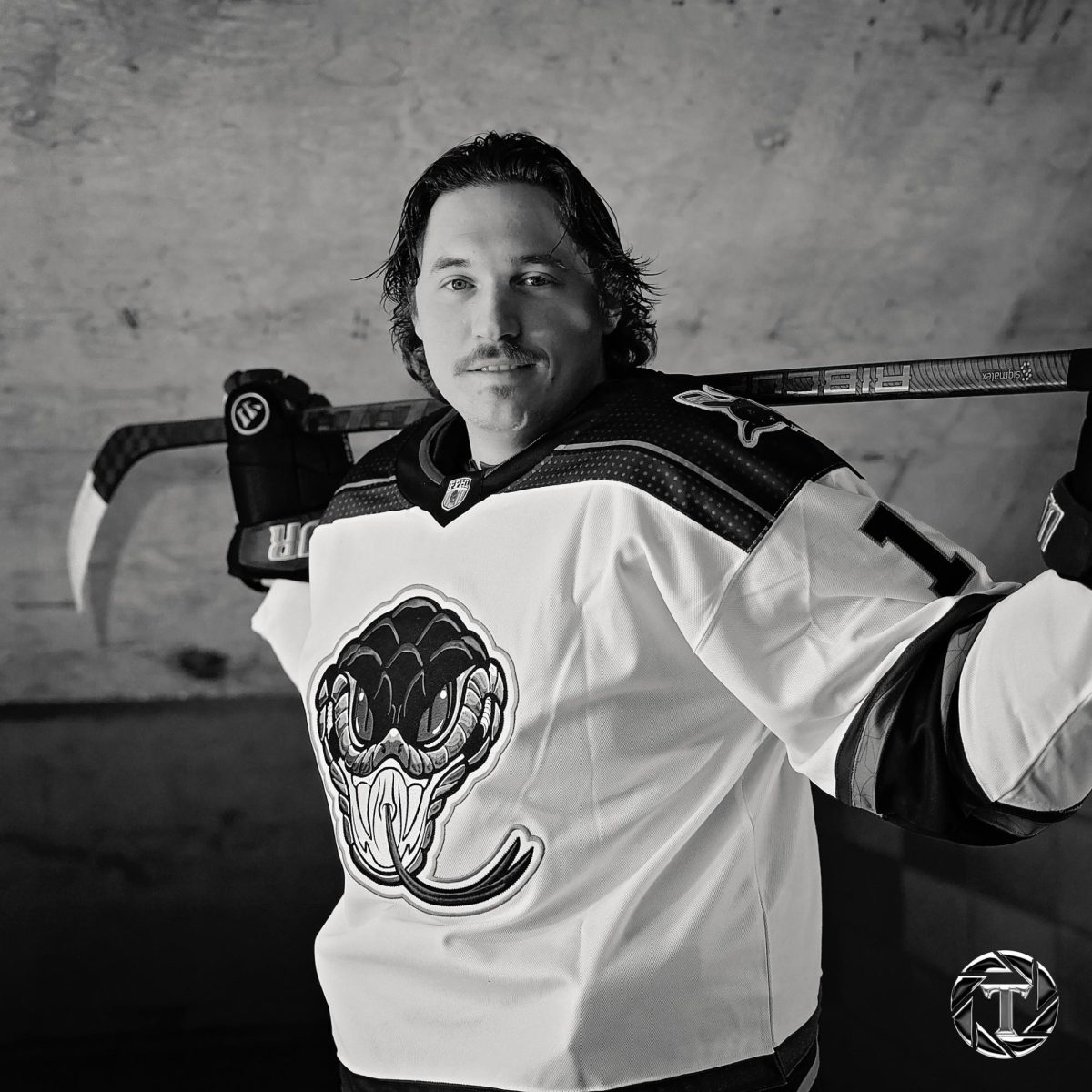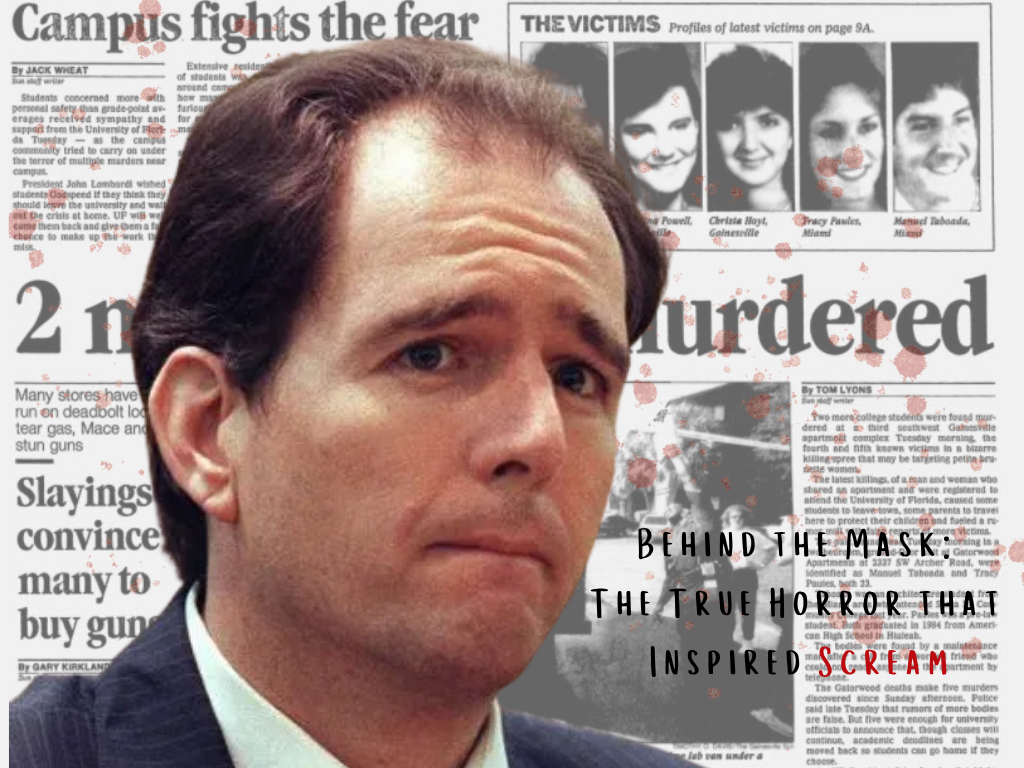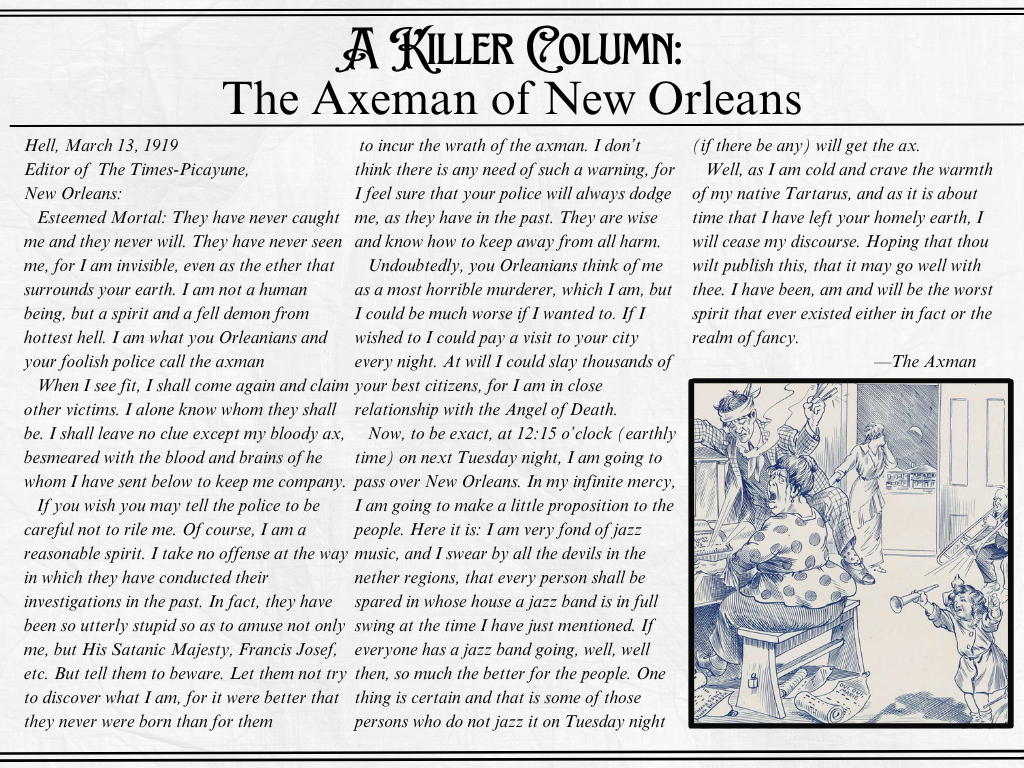Mental illness is the last thing a college student should have to worry about. That’s why Jaime Blanson refused to let her depression pull her down.
Blanson, who graduated last fall with a B.A. in history, believes her depression began as a teenager.
“I thought it was just regular teenage angst, so I would write tons and tons of poetry to kind of express the pain I was going through,” Blanson said.
Then in the summer of 2013, she decided to see Karen Foster at ULM’s Counseling Center.
“I was in a really dark place,” Blanson said.
She wasn’t leaving the house. She stopped speaking to her family and friends. Blanson was content to let time pass her by. But Foster, director of the counseling center, saved her life.
Foster was the first person to diagnose Blanson with depression and social anxiety. After seeing her for about a month, Foster suggested Blanson attend the Monroe Mental Health Clinic to start medicinal therapy.
“I immediately started to see a therapist and a psychologist, and together we developed a treatment plan to guide me out of the darkness,” Blanson said.
She is currently on a medicine regime that includes Zoloft and Klonopin. She also sees her doctors once a month.
“Still, I’m not going to say I’m cured because I discuss my feelings and take a few pills. I will say that I just take everything a day at a time,” Blanson said.
Some days are so good that Blanson wishes they would never end. But sometimes it can get so bad that all she wants to do is sleep or drink the day away. During times like that, Blanson likes to think of the quote “life is too short to spend it at war with yourself.”
“I don’t want to spend the rest of my life fighting myself, when I could be fighting for my dreams, or fighting to make the world a better place,” Blanson said.
Blanson wants people to realize that depression is not a taboo and should not be stigmatized.
“We have to wake up every day ready to battle our demons and the darkness that threatens to invade our thoughts,” said Blanson. “We shouldn’t have to battle people who can’t relate to our conditions too.”
Blanson said people have to be “in an immense abyss of mental anguish” to deem suicide as their best option and others should not judge those like Robin Williams, but instead to take it as a lesson to be there for people when they are in need.
According to Bill McCown, a clinical psychologist and professor, depression is very complex. Many things can trigger depression in a person such as change or stress.
“There are very few things in our society as stressful as going to college, particularly the first year so people are at higher risk,” said McCown. “Depression is not at all related to being a weaker person. It’s a biological disease, a brain disorder.”
According to McCown, people have to realize what suicide is.
“In my opinion it’s a desperate response to a serious disorder. It shouldn’t be glorified anymore than a heart attack. It’s tragic,” McCown said.
Depression is treatable. Evidence suggests that treating depression early on can keep it from worsening or returning, according to McCown.
Depression comes in many forms. One person may become withdrawn, another can experience extreme agitation or manic. Anxiety and Bipolar disorder are also forms of depression.
McCown said Bipolar disorder emerges in the late teens or early twenties and can be difficult to diagnose.
“We have to be careful because things like staying up all night can trigger it. When you see someone manic, like way up, that’s a sign,” McCown said.
Hailey Williford, a senior speech language pathology major, has dealt with depression for eight years. Before Williford started college, she had it under control. But the transition from high school to college began to affect her.
“When I didn’t make the grades I needed, my depression would be really bad and it seemed like everything was falling apart,” Williford said.
Looking back, she realized that if she studied more often and did not procrastinate then her depression may have not been a heavy problem.
Williford makes time to study everyday for a couple of hours. She uses gum to stimulate her brain. As seen in Wired Magazine, chewing gum has cognitive benefits and boosts mental performance.
“Freshmen need to understand that they need to limit stress so that depression isn’t triggered,” Williford said.
McCown has noticed that it seems to be a competition of who has the most work or stress.
“And they say ‘oh that’s nothing let me tell you how I am’ It becomes an upward cycle and a lot of times people convince themselves that they are more depressed than they actually are,” McCown said.
But other times, it can cause someone who is really struggling with depression to become silent about it.
McCown said it’s better to talk to a health professional that can diagnose true symptoms.
Williford also made time for exercise in her daily schedule. Exercise releases endorphins, which interact with the brain and trigger positive feeling.
She found solace in going for walks, as suggested by her doctor.
“I just look at the things around me that I have to remind myself that things aren’t bad,” said Williford. “It could be worse but it’s not.”
But Williford had to go through some rough patches before she got to where she is today.
“I remember my freshman year of college I was not on the correct medicine and when I would drink all of my feelings would come out,” Williford said.
Alcohol put her into a bad state of mind. The things she held inside would come out. It affected not only her, but also those around her.
“People did not want to be around someone who would start crying for no reason or didn’t want to talk to them because of what they might say,” Williford said.
Alcohol and substance use is not a cause of depression, but it can worsen depression that may already be there.
“Even if you don’t have a problem with depression and you drink heavily, you will get depressed,” said McCown. “That is an issue for a lot of college students.”
McCown advises those who have had vulnerability to depression in the past to not drink but to instead find another method of distraction. He said substance use can tip people into suicide. According to McCown, above 60 percent of those who kill themselves are under the influence.
“In college people are vulnerable to depression and if you are feeling depression get help. We have plenty of resources that are completely free,” McCown said.
There is more confidentiality for mental health problems. No one will know of any mental health treatment someone has received unless permission is given. If students have a problem, they can seek help on campus privately.
“People often feel there is stigma for talking to someone, but the stigma is when you have a problem and you don’t try to solve it,” McCown said.


